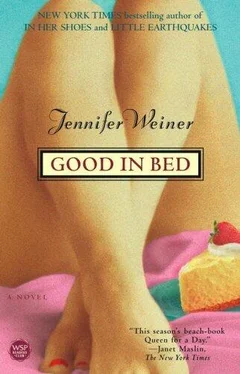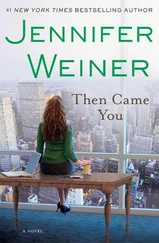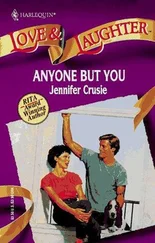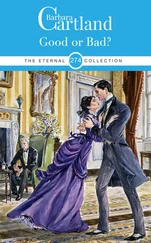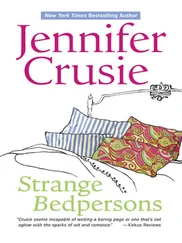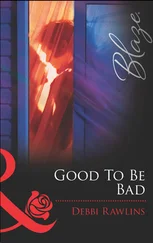“If you hate us so much, why did you even have kids?” I’d scream at him, taunting him with what I knew was the truth. He never had an answer – just more insults, more anger, more scalding, punishing rage. Josh, just six, was “a baby.” Lucy, who was twelve, he either ignored or berated. “Stupid,” he’d say, shaking his head at her grades, “Clumsy,” when she’d drop a glass. And, at thirteen, I became “the dog.”
It’s true, thirteen was not the year when I was looking my best. In addition to the breasts and hips I’d sprouted, seemingly overnight, I had acquired a mouthful of complicated-looking metal and rubber bands to correct my overbite. I had a de rigeur Dorothy Hamill haircut, which wasn’t doing my full face any favors. I bought clothes in two sizes – baggy and baggier – and spent the whole year in a perpetual stoop, trying to hide my chest. I looked like the Hunchback of Notre Dame, only with zits and braces. I felt like a walking affront, like a collection of the things my father spent his days waging war against. He was all about beauty – its creation, its maintenance, its perfection. Having a wife who’d fallen short of the mark and hadn’t stayed thin was one thing, I supposed… but a daughter who’d failed so flagrantly was, evidently, unforgivable. And I had failed. There was nothing beautiful about me at thirteen, nothing at all, and I could feel that fact confirmed in the hard, hateful way he looked at me, and in all the things he said.
“Cannie’s very bright,” I heard him tell one of his golf buddies. “She’ll be able to take care of herself. Not a beauty,” he said, “but smart.”
I stood there, hardly believing what I’d heard, and when I finally believed it, I crumpled inside, like a tin can under a car’s wheels. I wasn’t stupid, and I wasn’t blind, and I knew that there were many ways in which I differed from Farrah Fawcett, from girls in movies and on posters in boys’ bedrooms. But I’d remembered his hand on my head, his beard tickling my cheek as he kissed me. I was his daughter, his little girl. He was supposed to love me. Now he thought I was ugly. Not a beauty… but what father doesn’t think his little girl is beautiful? Except I wasn’t little. And, I guessed, I wasn’t his girl anymore.
When I look at pictures of myself from that time – and, understandably, there are only about four – there’s this horrible desperate look in my eyes. Please like me, I’m pleading, even as I’m trying to hide myself behind a row of cousins at a bar mitzvah, beneath the hot tub bubbles during a pool party, with my lips drawn in a pained smile, stretched tight over my braces, ducking my head into my neck, hunching my shoulders, slouching to make myself shorter, smaller. Trying to disappear.
Years later, in college, when a friend was recounting some bit of suburban childhood horror, I tried to explain how it was with my father. “He was a monster,” I blurted. I was an English major, versed in Chaucer and Shakespeare, Joyce and Proust by then. I still hadn’t found a better word than that.
My friend’s face got very serious. “Did he molest you?” she asked. I almost laughed. Given how much of my father’s conversation with me revolved around how ugly, how fat, how hideous I was, molestation was the last thing I would have expected.
“Did he abuse you?” she asked.
“He drank too much,” I said. “He left us.” But he never hit me. He never hit any of us. It would have been easier if he had. Then there would have been a name we could give it, a box to put it in, a label for the box. There would have been laws, authorities, shelters, TV talk shows where reporters gravely discussed what we were enduring, a built-in recognition of what we’d experienced, to help us through.
But he never raised a finger. And, at thirteen, at fourteen, I had no words for what he was doing to us. I didn’t even know how to start that conversation. What would I have said? “He’s mean?” Mean meant being grounded, meant no television after dinner, not the kind of daily verbal assault my father would routinely deliver over the dinner table, a scathing recitation of all the ways I’d failed to live up to my potential, the walking tour of the places that I had failed.
And who would have believed me? My father was always charm personified to my friends. He remembered their names, and their boyfriend’s names, he would inquire courteously about summer plans and college visits. They wouldn’t have believed me, and if they had they would have wanted me to explain. And I had no explanation, no answers. When you’re on a battleground, you don’t have the luxury of time to dwell on the various historical factors and sociopolitical influences that caused the war. You just keep your head down and try to survive it, to shove the pages back in the book, close the covers and pretend that nothing’s broken, nothing’s wrong.
The summer before my senior year of high school, my mother took Josh and Lucy to Martha’s Vineyard for the weekend. A friend had a rental house, she was itching to get out of Avondale. I had my first summer job, as a lifeguard at a local country club. I told my Mom that I’d stay home, watch the dogs, hold down the fort. I figured it would be fine: I could have the house to myself, entertain my twenty-three-year-old boyfriend away from her watchful eye, come and go as I pleased.
For the first three days it was fine. Then I came home in the predawn hours of the fourth morning, and it was as if I were twelve again. There was my father in the bedroom, the suitcase on the bed, the stacks of white T-shirts and the piles of black socks – maybe the same ones, I thought wildly, that he’d taken the last time.
I stared at them, and then at him. My father looked at me for a long moment. Then he sighed.
“I’ll call,” he said, “when I have my new number.”
I shrugged. “Whatever,” I said.
“Don’t talk to me like that!” he said. He hated when we were flip. He demanded respect, even – especially – when he didn’t deserve it.
“What’s her name?” I asked. He narrowed his eyes.
“Why do you want to know?”
I looked at him and couldn’t think of an answer. Did I imagine that it made any difference? Could a name even matter?
“Tell your mother,” he began. I shook my head.
“Oh, no,” I said. “Don’t make me do your dirty work. If you’ve got something to say, tell her yourself.”
He shrugged, like it didn’t matter. He added a few more shirts, a fistful of ties.
“I’m glad you’re leaving. Do you know that?” I said. My voice was too loud in the early-morning quiet of the house. “We’ll be better off without you,” I said.
He looked at me. Then he nodded. “Yes,” he said, “I think maybe you will.”
He went back to his packing. I went back to my bedroom. I lay on the bed – the bed where my father had read to me, a million years ago – and closed my eyes. I’d been waiting for this, after all. I’d known it was coming. I thought it would feel the way it does when a scab over an old wound finally falls off – a momentary pang, a little bit of pain, a sense of absence. Then nothing. Just nothing at all. That was what I was supposed to feel, that was all I wanted to feel, I thought fiercely, tossing and turning on my bed, trying to find comfort. It didn’t matter, I told myself, over and over again. I just couldn’t figure out why I was crying.
I went to Princeton because he told me to, in one of his last acts of hands-on parenting. I’d wanted to go to Smith. I liked the campus, liked the crew coach, liked the idea of an all-girls’ school, where the focus would be on learning, where I could be free to be who I was: your basic late-eighties model nerd with her nose in a book.
Читать дальше
